We are halfway through Black History Month and Columbus Day is approaching which honours the Italian explorer Christopher Columbus. Some people do not observe Columbus Day at all, citing the lasting harm Indigenous tribes suffered because of Columbus’s contributions to the European colonization of the Americas. Indigenous Peoples Day was instituted in Berkeley, California, in 1992, to coincide with the 500th anniversary of the arrival of Columbus in the Americas on October 12, 1492.
Anti-Slavery Day, established by the UN, falls on 18 October 2024. This day was a response to the growing recognition of modern slavery as a global problem. It provides an opportunity to reflect on the abolition of slavery and to reaffirm the commitment to ending all forms of contemporary slavery. Since its inception, Anti Slavery Day has gained international recognition and has become a platform for advocacy and awareness-raising about modern slavery and human trafficking.
May we use this time to not only reflect on history but also reflect on the current problems we are facing around the globe today.
 Donate and Support the People of Lebanon
Donate and Support the People of Lebanon
According to the United Nations, the attacks on southern and eastern Lebanon and the capital Beirut have been the deadliest in years. As of 29 September 2024, 346,209 IDPs, including 121,200 displaced children, were counted in Lebanon. More than 100,000 people fled from Lebanon to Syria by 30 September 2024, according to UNHCR.
The people of Lebanon are facing an unimaginable humanitarian crisis, and they need your urgent help. Many are traumatised from losing homes and loved ones. We are expecting casualties and fatalities to increase unfortunately, the need is already immense. IHRC Trust is monitoring the situation and looking to deploy in the worst hit areas. Urgent medical aid is needed to help treat civilians and support the local health system. We will aim to assist with procuring supplies of blankets, hygiene kits, medication, and medical supplies for the treatment of casualties.
Please donate generously below and support the people of Lebanon in the tribulations they face.
THROWBACK: Kwame Nimako – The Dutch Atlantic: Slavery, Abolition and Emancipation
12 years ago, IHRC hosted an author evening with Kwame Nimako who discussed his publication ‘The Dutch Atlantic: Slavery, Abolition and Emancipation’. To watch the recording, click on the video below.
Kwame Nimako teaches international relations at the graduate school of social sciences, University of Amsterdam. He is the author and co-author of over 30 books, reports and guidebooks on economic development, ethnic relations, social policy, urban renewal and migration.
THROWBACK 2: Genocide Memorial Day 2019: Sandew Hira – Genocide, Colonialism and Reparations
5 years ago, IHRC hosted GMD 2019. The theme of the event was ‘Genocide, Colonialism and Reparations’. Sandew Hira was one of the guest speakers at the event. Click below to which the recording of his talk.
Sandew Hira, pen-name of Dew Baboeram, is an independent scholar and activist. He studied economics at the Erasmus University Rotterdam. In 1982 he published his first book on the history of the struggle against colonialism in Suriname from 1630-1940.
Below are books that are currently available at IHRC Bookshop:
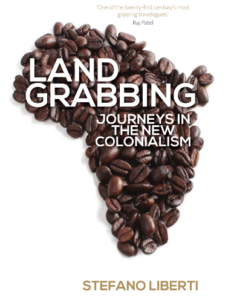 Land Grabbing: Journeys in the New Colonialism – Stefano Liberti
Land Grabbing: Journeys in the New Colonialism – Stefano Liberti
To the governments and corporations that are currently buying up vast tracts of the Third World, it is called ‘land leasing.’ To its critics this new era of colonization is nothing more than ‘land grabbing.’ In this arresting account of how millions of hectares of fertile soil are being stolen to feed the wealthy thousands of miles away, journalist Stefano Liberti takes us from a Dutch-owned model farm in Ethiopia to an international conference in Riyadh, where representatives of Third World governments compete to attract the interest of Saudi investors; from institutional and commercial meetings in Rome to the headquarters of the Landless Workers’ Movement in São Paulo.
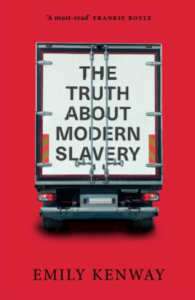 The Truth About Modern Slavery – Emily Kenway
The Truth About Modern Slavery – Emily Kenway
In 2019, over 10,000 possible victims of slavery were found in the UK. From men working in Sports Direct warehouses for barely any pay, to teenaged Vietnamese girls trafficked into small town nail bars, we’re told that modern slavery is all around us, operating in plain sight. But is this really slavery, and is it even a new phenomenon? Why has the British Conservative Party called it ‘one of the great human rights issues of our time’, when they usually ignore the exploitation of those at the bottom of the economic pile?
The Truth About Modern Slavery reveals how modern slavery has been created as a political tool by those in power. It shows how anti-slavery action acts as a moral cloak, hiding the harms of the ‘hostile environment’ towards migrants, legitimising big brands’ exploitation of the poorest workers and oppressing sex workers. Blaming the media’s complicity, rich philanthropists’ opportunism and our collective failure to realise the lies we’re being told, The Truth About Modern Slavery provides a vital challenge to conventional narratives on modern slavery.
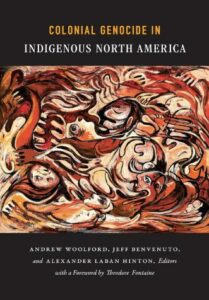 Colonial Genocide in Indigenous North America
Colonial Genocide in Indigenous North America
This important collection of essays expands the geographic, demographic, and analytic scope of the term genocide to encompass the effects of colonialism and settler colonialism in North America. Colonists made multiple and interconnected attempts to destroy Indigenous peoples as groups. The contributors examine these efforts through the lens of genocide. Considering some of the most destructive aspects of the colonization and subsequent settlement of North America, several essays address Indigenous boarding school systems imposed by both the Canadian and U.S. governments in attempts to “civilize” or “assimilate” Indigenous children. Contributors examine some of the most egregious assaults on Indigenous peoples and the natural environment, including massacres, land appropriation, the spread of disease, the near-extinction of the buffalo, and forced political restructuring of Indigenous communities. Assessing the record of these appalling events, the contributors maintain that North Americans must reckon with colonial and settler colonial attempts to annihilate Indigenous peoples.
August 2019 saw numerous commemorations of the year 1619, when what was said to be the first arrival of enslaved Africans occurred in North America. Yet in the 1520s, the Spanish, from their imperial perch in Santo Domingo, had already brought enslaved Africans to what was to become South Carolina. The enslaved people here quickly defected to local Indigenous populations, and compelled their captors to flee. Deploying such illuminating research, The Dawning of the Apocalypse is a riveting revision of the “creation myth” of settler colonialism and how the United States was formed. Here, Gerald Horne argues forcefully that, in order to understand the arrival of colonists from the British Isles in the early seventeenth century, one must first understand the “long sixteenth century”- from 1492 until the arrival of settlers in Virginia in 1607.
During this prolonged century, Horne contends, “whiteness” morphed into “white supremacy,” and allowed England to co-opt not only religious minorities but also various nationalities throughout Europe, thus forging a muscular bloc that was needed to confront rambunctious Indigenes and Africans. In retelling the bloodthirsty story of the invasion of the Americas, Horne recounts how the fierce resistance by Africans and their Indigenous allies weakened Spain and enabled London to dispatch settlers to Virginia in 1607. These settlers laid the groundwork for the British Empire and its revolting spawn that became the United States of America.
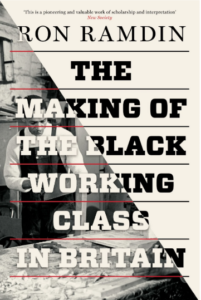 The Making of the Black Working Class in Britain – Ron Ramdin
The Making of the Black Working Class in Britain – Ron Ramdin
This is the first comprehensive historical perspective on the relationship between black workers and the changing patterns of Britain’s labour needs. It places in an historical context the development of a small black presence in sixteenth-century Britain into the disadvantaged black working class of the 1980s. The book deals with the colonial labour institutions (slavery, indentureship and trade unionism) and the ideology underlying them and also considers the previously neglected role of the nineteenth-century black radicals in British working class struggles. Finally, the book examines the emergence of a black radical ideology that has underpinned the twentieth-century struggles against unemployment, racial attacks and workplace grievances, among them employer and trade union racism.
This book brings together thirty essays representing a diversity of voices–political prisoners, grassroots organizers, scholars, and relatives of those killed by the anti-Black terrorism of policing and prisons. This collection presents readers with a moral choice: “Will you continue to be actively complicit in the perpetuation of these systems,” Kaepernick asks in his introduction, “or will you take action to dismantle them for the benefit of a just future?”
Powered by courageous hope and imagination, Abolition for the People provides a blueprint and vision for creating an abolitionist future where communities can be safe, valued, and truly free. “Another world is possible,” Kaepernick writes, “a world grounded in love, justice, and accountability, a world grounded in safety and good health, a world grounded in meeting the needs of the people.”
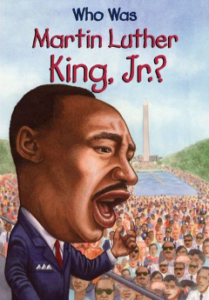 Who Was Martin Luther King Jr.? – Bonnie Bader
Who Was Martin Luther King Jr.? – Bonnie Bader
Dr. Martin Luther King, Jr. was only 25 when he helped organize the Montgomery Bus Boycott and was soon organizing black people across the country in support of the right to vote, desegregation, and other basic civil rights. Maintaining nonviolent and peaceful tactics even when his life was threatened, King was also an advocate for the poor and spoke out against racial and economic injustice until his death―from an assassin’s bullet―in 1968.
With clearly written text that explains this tumultuous time in history and 80 black-and-white illustrations, this Who Was? celebrates the vision and the legacy of a remarkable man.

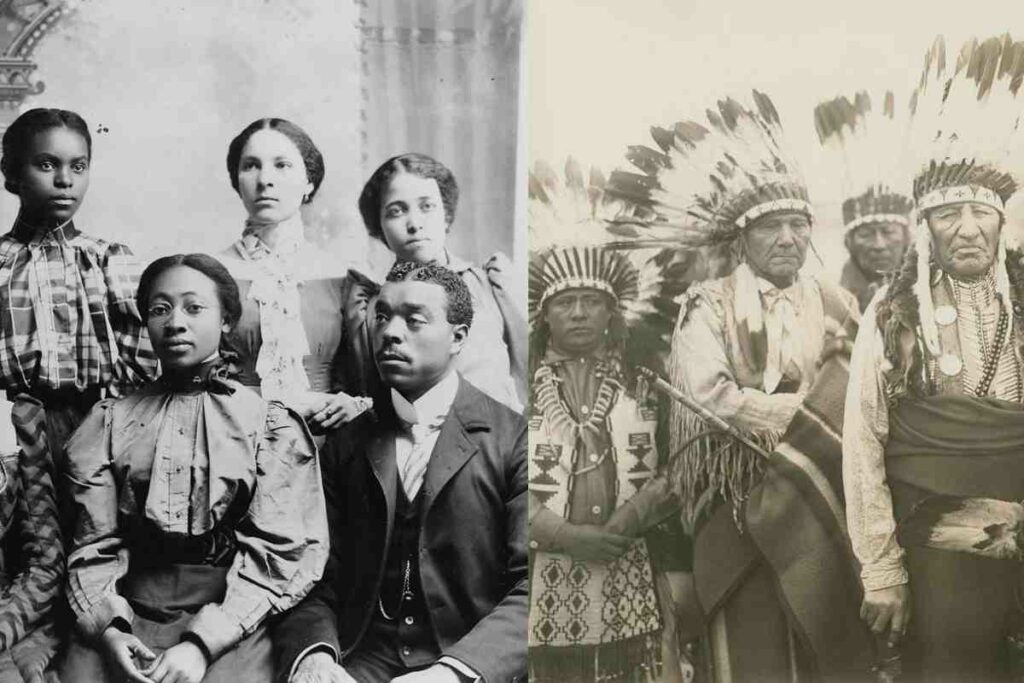
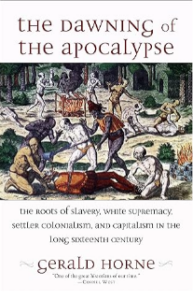 The Dawning of the Apocalypse: The Roots of Slavery, White Supremacy, Settler Colonialism, and Capitalism in the Long Sixteenth Century – Gerald Horne
The Dawning of the Apocalypse: The Roots of Slavery, White Supremacy, Settler Colonialism, and Capitalism in the Long Sixteenth Century – Gerald Horne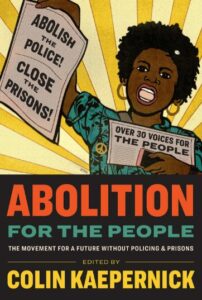 Abolition for the People: The Movement for a Future Without Policing & Prisons – Colin Kaepernick (Editor)
Abolition for the People: The Movement for a Future Without Policing & Prisons – Colin Kaepernick (Editor)




